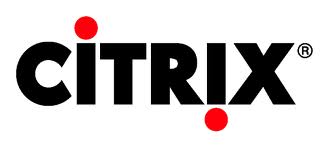What is Cloud computing?
Cloud– The practice of using a network of remote servers hosted on the Internet to store, manage, and process data, rather than a local server
With cloud computing, you eliminate those headaches because you’re not managing hardware and software—that’s the responsibility of an experienced vendor like salesforce.com. The shared infrastructure means it works like a utility: You only pay for what you need, upgrades are automatic, and scaling up or down is easy.
Cloud-based apps can be up and running in days or weeks, and they cost less. With a cloud app, you just open a browser, log in, customize the app, and start using it.
Businesses are running all kinds of apps in the cloud, like customer relationship management (CRM), HR, accounting, and much more. Some of the world’s largest companies moved their applications to the cloud with salesforce.com after rigorously testing the security and reliability of our infrastructure.
As cloud computing grows in popularity, thousands of companies are simply rebranding their non-cloud products and services as “cloud computing.” Always dig deeper when evaluating cloud offerings and keep in mind that if you have to buy and manage hardware and software, what you’re looking at isn’t really cloud computing but a false cloud.
Below are the lists of companies providing the Cloud products and Services:
Microsoft Cloud Services
Office 365is a set of subscription-based products for business, home, or school that require periodic payments to Microsoft in order for the subscriber to use the products.Examples of these subscription-based products (or more specifically subscription plansthat each encompasses a subscription to one or more products) include hosted e-mail for businesses for $4 per month per user, Office 365 Small Business Premium that includes a subscription to Microsoft Officeapplications (e.g., Word, Excel, PowerPoint, etc.) for $15 per month per user, and Office 365 Home Premium for $99.99 per year, among others.
Microsoft Dynamics CRM comes in 2011 version for cloud offering and installation by a partner/customer. As in CRM 4 these versions can be highly customized using advanced extensions. New feature set includes – Visualizations, Dashboards, Document Management, Grid Filters, Dialogs, Recurring Appointments, Custom Activities, Goal Management, Fetch based Reports, MAPI based Outlook clients, FLS etc.
- Native integration with SharePoint 2010
- Ability to create a query behind a look-up
- Placing of a grid with child records on the parent record
- Auto filter sorting capability like in Microsoft Office Excel
- Microsoft Office Ribbon interface replaces menus
- OData endpoints
- LINQ programming API in the SDK
- WCF services
- Customization can be packaged as solutions
- CRM Online supports plugins in sandboxed mode
- Multiple forms per entity
- Dashboard designer
The Windows Intune is cloud service helps you centrally manage and secure your PCs through a simple web-based conso
Doesn’t matter if your IT staff or end users are in the main office, at a branch office, or on the road, domain or non-domain joined, Windows Intune will provide the functionality you need.
Google Cloud Service
-
Google App Engine
Create apps on Google’s platform that are easy to manage and scale. Benefit from the same systems and infrastructure that power Google’s applications.
-
Google Compute Engine
Run your large-scale computing workloads on Linux virtual machines hosted on Google’s infrastructure. Sign up to request access.
-
Google Cloud Storage
Store, access and manage your data on Google’s storage infrastructure. Take advantage of the scale and efficiency we have built over the years.
-
Google BigQuery
Analyze Big Data in the cloud using SQL and get real-time business insights in seconds using Google BigQuery. Use a fully-managed data analysis service with no servers to install or maintain.
-
Google Cloud SQL
Run MySQL databases in Google’s cloud. Use a fully managed service to maintain and administer your databases, so you can focus more on building your applications and worry less about database management.
Citrix Cloud Networking
NetScaler App Delivery Controller
Cloud Platforms
Automate and scale your datacenter with cloud orchestration and management.
CloudPlatform (powered by Apache CloudStack)
- Why should you automate Active Directory cleanup? - 17 June 2025
- Troubleshooting: Unable to Add Instance Failover Group to Azure SQL Managed Instance - 4 March 2025
- 10 Azure Virtual Desktop (AVD) Cost-Optimization Strategies for 2025 💡💰 - 22 February 2025




